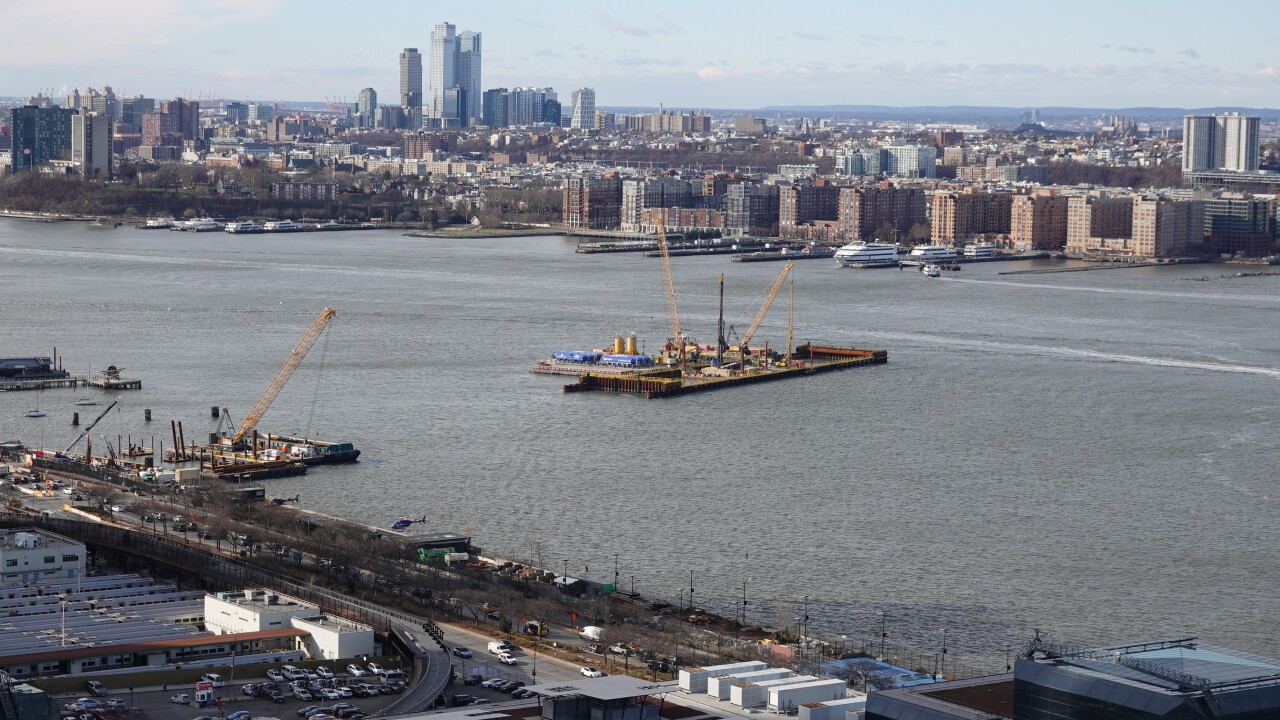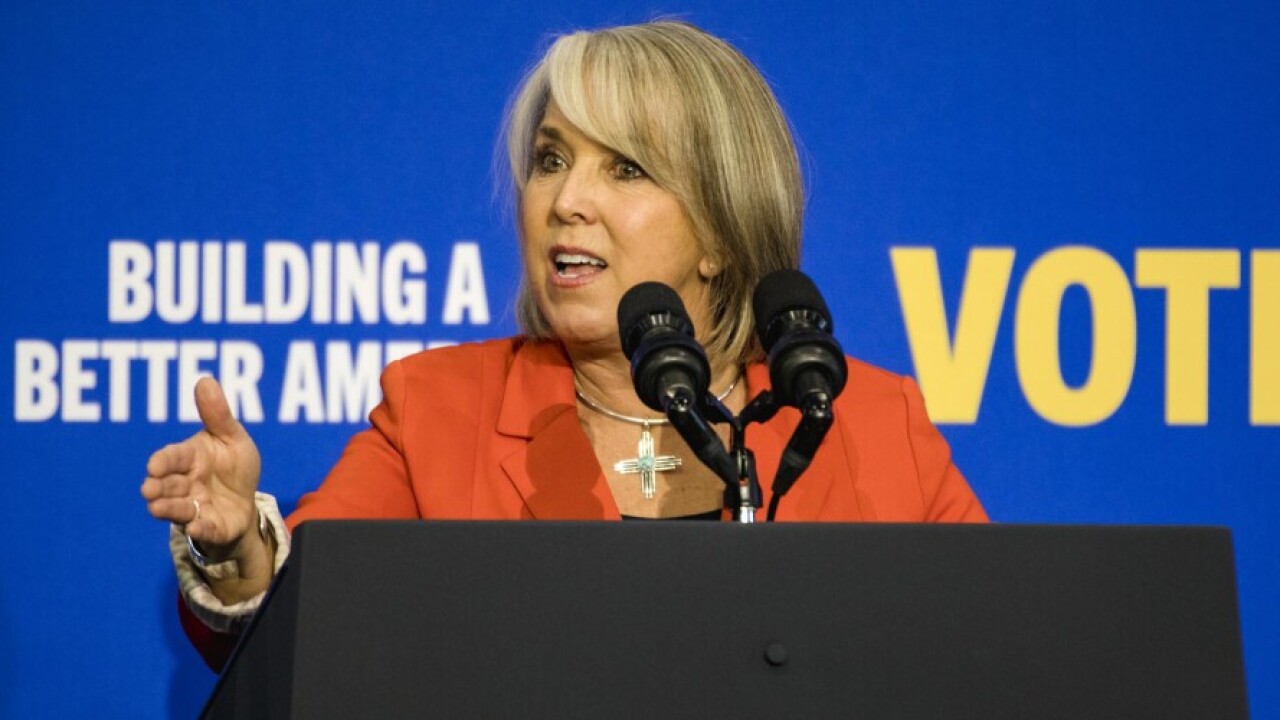LOS ANGELES— San Diego civic leaders are standing behind their plan to expand the city’s convention center after the San Diego Chargers tried to derail the plan with an alternative that includes a new football stadium.
The National Football League team came out with the alternative plan with less than a month to go before a California Coastal Commission vote on the convention center, one of the final procedural hurdles for the $520 million bond-financed project to add 400,000 square feet to the facility.
Convention Center Corp., San Diego Unified Port District officials, San Diego City Council members, representatives of state legislators, hotel unions and hospitality industry leaders spoke at a recent press conference in favor of the city council-approved convention center expansion plan and against the Chargers’ alternative.
“We didn’t get here overnight. This project has benefited from rigorous public scrutiny and debate over the past five years, and it’s ready for prime time,” said San Diego’s interim mayor and city council president, Todd Gloria.
The football team proposed the same plan nearly two years ago, hoping to piggy-back on city officials’ plans to expand the convention center, with no success.
The Chargers say their new stadium combined with additional convention center space -- should be built away from San Diego Bay in the East Village part of downtown. The team’s proposal would build convention center space blocks away from the current convention center. Critics say it fails to create the 1 million square feet of contiguous space under one roof that is the hallmark of the expansion plan approved by the San Diego City Council.
“Our clients have told us loud and clear that they need an expansion that is contiguous so they can host their meetings under one roof,” said Phil Blair, chair of the San Diego Convention Corp.
Gloria said residents and business owners have told him they want to keep one of the convention center’s most popular events, the pop-culture fest Comic-Con International, in San Diego.
“I want to keep Comic-Con here; it is an event that draws the eyes of the world to San Diego,” Gloria said.
Without the expansion, Gloria said, the city is in danger of losing the week-long convention and is already missing out on income from other convention planners.
“So many want to come here that we are missing out on,” Gloria said. “We should not have to turn people away because our current convention center is not big enough.”
The expansion plan approved by city officials would open up waterfront access for residents and visitors. The convention center’s current design prevents tourists from walking along the bay front on either side. The project also creates a rooftop great park that would be open to city residents and tourists.
The Chargers proposal would add $600 million to the cost of the convention center expansion, according to Mark Fabiani, a Chargers spokesman.
The team has made clear its intention to oppose the city’s desired expansion and argue instead for its project on the grounds that the city’s plan would have greater environmental impacts, because it expands the current convention center on the city’s waterfront, compared to the Chargers alternative plan that expand the convention center in the East Village, blocks away from the bay.
The bayfront location puts the convention center project in the jurisdiction of the California Coastal Commission, a state agency with authority over seafront development. It’s expected to decide on the city’s convention center request during its next meetings between Oct. 9 and Oct. 11 in San Diego.
While city officials have said they support construction of a stadium “separate” from the convention center expansion, the city has no plans underway to design or construct a stadium to replace Qualcomm Stadium, the Chargers current home.
“The Chargers are incredibly important to San Diego,” said Councilman Kevin Faulconer, a mayoral candidate. “We need to have a convention center expansion plan that makes sense.”
But San Diego is a big city and it can both construct a convention center expansion and build a separate stadium, Faulconer said.
The financial plan approved by the City Council for the convention center expansion in October 2012 involves issuing $549.5 million in bonds. The bonds would be repaid by a 1% to 3% tax on local hotels with the amount depending on proximity to the convention center.
Although the council approved the financial plan, the city’s debt management team will come back to the city for approval of bond disclosure agreements on short-term notes and long-term bonds, said Lakshmi Kommi, San Diego’s debt management director. Goldman, Sachs & Co. and Citi were selected as underwriters on a $40 million short-term note offering that will fund 18 months of design, pre-construction and roadwork.
The hotel tax, expected to raise nearly $30 million annually, would be used to pay off the construction bonds. The $520 million project would require $549.5 million bond proceeds, according to the plan, which calls for the issuance of $333 million of 30-year revenue bonds backed by the special-district hotel taxes and $3 million port district support payments.
The second bond issuance would consist of $175.5 million of 30-year supplemental lease-revenue bonds, leveraging the excess revenue above the actual debt service combined with incremental city-hotel bed taxes of up to $3.5 million diverted from the city’s general fund.
San Diego would be the conduit issuer of the primary bonds. The supplemental debt would be issued using a lease revenue bond structure through a joint-powers authority making use of the original convent center property as the subject of the lease.
The supplemental bond would need to be backed by the city’s general fund credit with the revenue allocated to cover debt service limited to $3.5 million annually from incremental hotel bed taxes.
It’s not just the Coastal Commission approval that represents a hurdle the city still has to resolve an appeal on the validation suit it filed to get a judge’s approval on the hotel tax.
Detractors claimed the vote on the tax put only to the hotel owners, who would pay the tax, was unconstitutional, because it didn’t go to vote of the entire electorate. Hoteliers approved the tax by 92% on May 7, 2012.
A judge ruled in support of the hotel tax in March in a validation suit brought by City Attorney Jan Goldsmith. But Attorney Cory Briggs, who represents San Diegans for Open Government, filed an appeal.
The appeal might not be resolved until next year, Kommi said. The original plan was for construction to begin in early 2014 with completion set for early 2017.
San Diego officials have said before if they don’t receive approval for the special tax assessment, they could switch to a general tax ballot.





